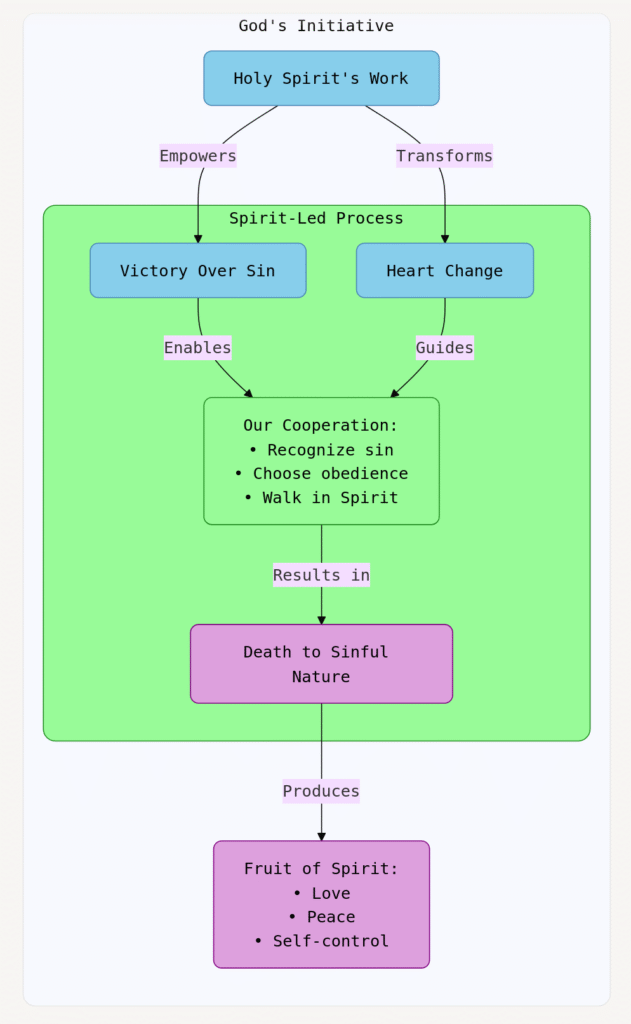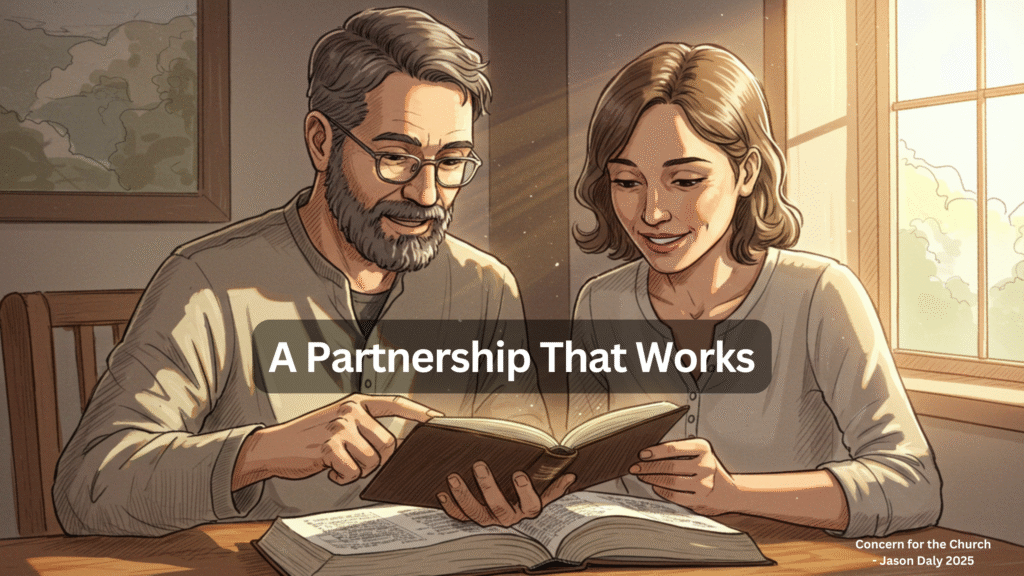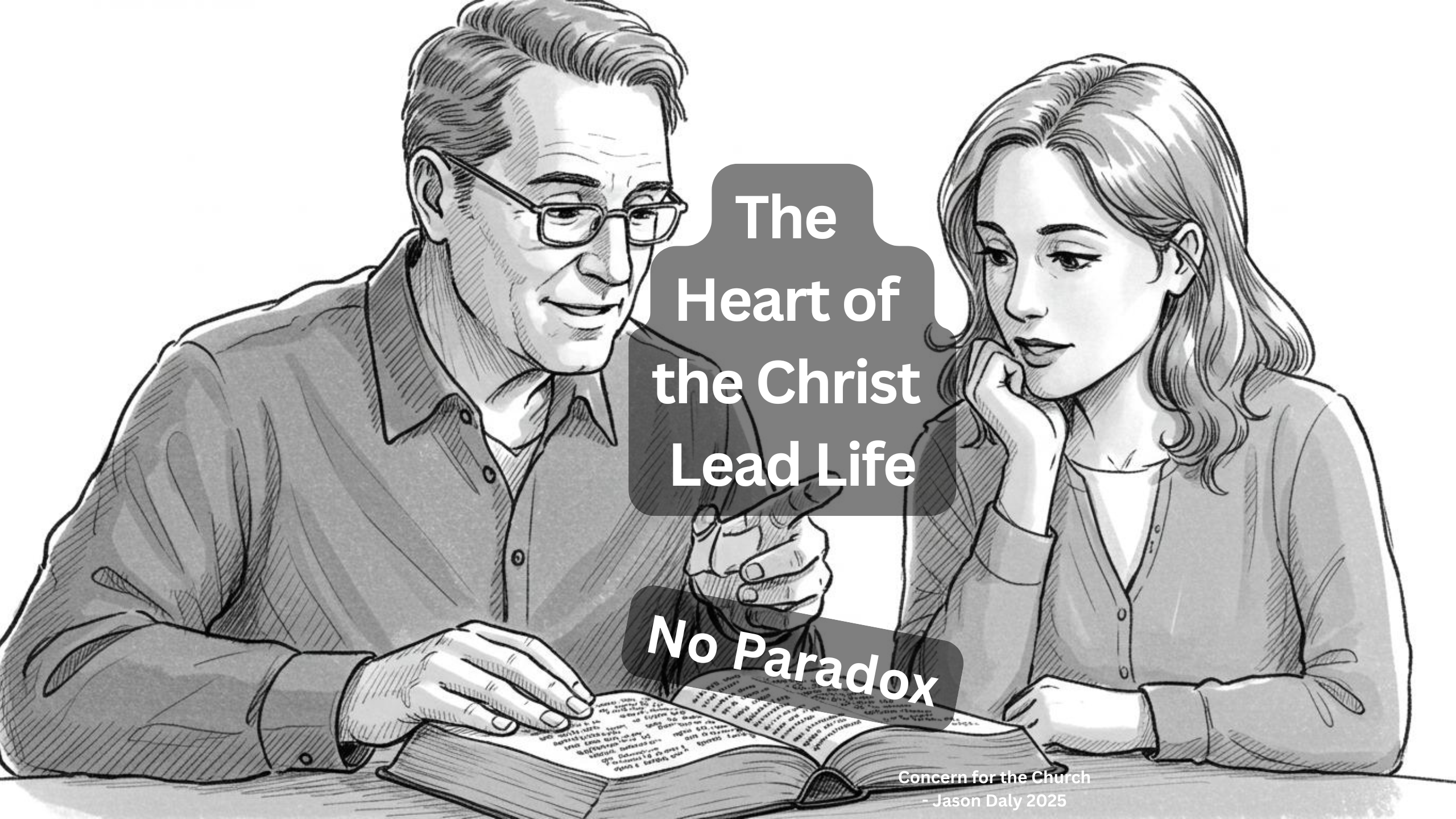Isn’t it an incredible paradox? As Christians, we understand that salvation is a free gift, offered through grace and received by faith. Yet, we’re also challenged to actively combat our sinful nature and “put to death the deeds of the flesh.” How do we navigate this tension between grace and responsibility on our Christian journey?
The heart of the Christ-led Life
This is a profound question that gets to the heart of the Christian life. The seeming paradox between grace and personal responsibility in putting to death the sinful nature is resolved when we understand the role of the Holy Spirit in this process.

In this diagram, blue represents God’s initiative through the Holy Spirit, green shows our Spirit-enabled cooperation, and purple indicates the resulting transformation. Notice how everything flows from the Spirit’s work – we don’t initiate the process, but we do participate in it.
Grace and Responsibility Work
This visual representation helps us understand how grace and personal responsibility work together. While we are saved by grace through faith alone, the Bible commands us to “put to death the deeds of the flesh” (Romans 8:13). This isn’t a contradiction – it’s a partnership between God’s empowering grace and our responsive obedience.

Here’s how this partnership works in practice:
- The Spirit Initiates and Empowers
- The Holy Spirit begins the work of transformation in us
- He provides the power to overcome sin
- Without His empowerment, we couldn’t resist sin’s pull
- Our Role in the Process
- We recognize sin through the Spirit’s conviction
- We choose to cooperate with the Spirit’s work
- We actively participate in putting sin to death
- The Resulting Transformation
- The Spirit produces fruit in our lives (Galatians 5:22-23)
- We become increasingly conformed to Christ’s image
- Sin loses its controlling power over us
Our Responsibility We Recognise (conviction), we Choose (free will), we Do (need for action)
Put Sin To Death
This isn’t a case of either/or – it’s both/and. We must put to death the deeds of the flesh, but we do this through the Spirit’s enabling power. As Paul writes, “If by the Spirit you put to death the deeds of the body, you will live” (Romans 8:13). Notice the “by the Spirit” – this is crucial. We don’t accomplish this through sheer willpower or moral effort, but through Spirit-empowered obedience.
An Instrument
Think of it like learning to play a musical instrument. While you must practice (your responsibility), you’re guided by a teacher (God’s provision). Without the teacher, your practice would be ineffective; without practicing, the teacher’s guidance wouldn’t produce results. In the same way, God provides the power and guidance through the Spirit, while we respond with intentional obedience.
This understanding resolves the apparent paradox: we must put to death the deeds of the flesh, but we do this through the very power that saved us in the first place. It’s not either grace or personal responsibility – it’s grace that enables our responsible participation in our sanctification.
Remember
Put Sin to Death
The command to put sin to death isn’t a burden placed on us to earn salvation – it’s an invitation to experience the freedom that Christ purchased for us.
As Paul reminds us, “For God is working in you, giving you the desire and the power to do what pleases him”.

